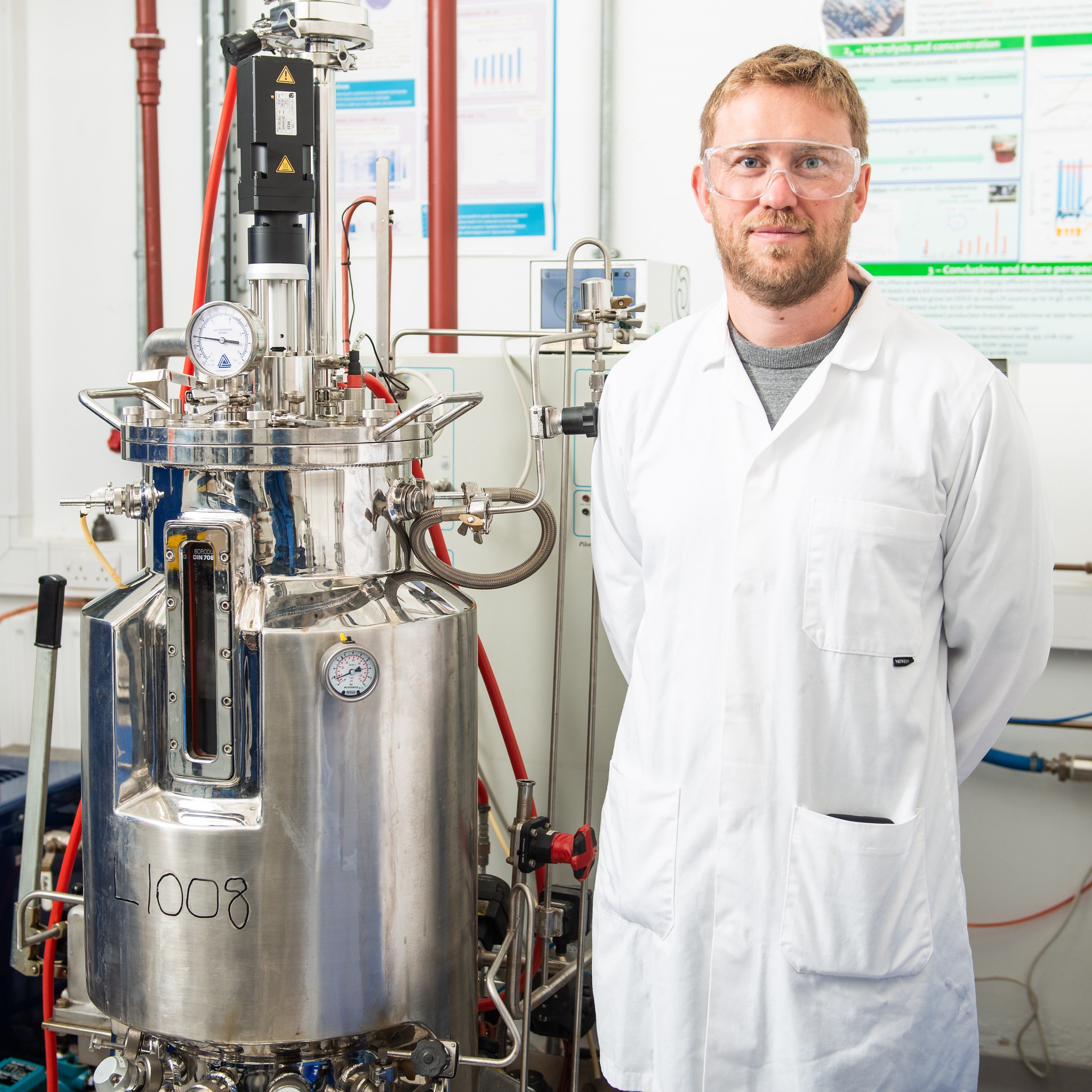Attracting the best minds to Bath
How a prestigious fellowship funded by an alumnus led to a landmark invention: a sustainable alternative to palm oil.
Palm oil is in approximately half of all packaged products in supermarkets, from cookies to cleaning supplies. The sheer scale of its production has led to mass deforestation that harms wildlife, ecosystems and the climate.
But the solution is growing in one of our labs.
Finding fellowship
A revolutionary yeast alternative has been developed over years of trial, error and even accelerated evolution, led by Chris Chuck (PhD Chemistry 2008). He became one of Bath’s first Whorrod Research Fellows in 2011, supported by alumnus Roger Whorrod OBE and his wife, Sue. Chris is now a Professor in Chemical Engineering, teaching the next generation of innovators, and his palm oil substitute has been successfully commercialised. He credits the fellowship with the rapid trajectory of both his research and career.
“The fellowship was everything,” Chris explains. “It paid my wages so that I could focus on developing my ideas, build up a group of PhD students and get to the point where I was able to secure a £4m government grant, which led to £1.8m in investment from the Clean Food Group. Ultimately, it enabled me to go the distance and really make a difference.”

Food for thought
The Clean Food Group has established a dedicated lab on campus where Chris and a multi-disciplinary team are ramping up to industrial-scale production. His vision is to have this palm oil substitute in supermarket products within five years. “To get to this point, you need the work of chemists, biologists, engineers and food scientists,” he adds. “We have the networks and expertise at Bath, which is why we have so much impactful research.”
Along the way, this work has also sparked other novel solutions, such as turning waste coffee grounds into biodiesel and using seaweed to produce plastic. “My research is all about addressing the need for more sustainable products by looking at what we have now and finding where the gaps are,” Chris explains. “The yeast we’ve created is so versatile that we could eventually create foods with new flavours, textures and nutritional profiles – the future of food is really exciting.”
Read our Parade Profile with Chris
A better option
Watch Chris talk about his palm oil substitute.
Sustainable solutions
Three more innovative ways we're working towards a greener future.
More deep dives on how we're making real-world changes
Discover our Research with Impact